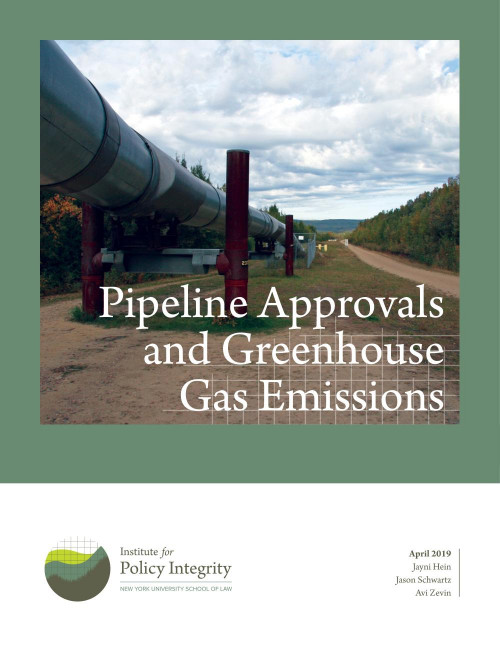In light of growing public awareness of the environmental effects of pipeline projects, the Federal Energy Regulatory Commission (FERC) has faced competing pressures regarding how to balance the need for new natural gas pipelines with their environmental consequences. Concerns about greenhouse gas (GHG) emissions and resulting climate change effects have become a flashpoint in the debate. Our report examines the legal context surrounding FERC’s evaluation of the environmental impacts of proposed interstate natural gas pipelines. We look at FERC’s obligations under the Natural Gas Act and the National Environmental Policy Act, as well as potential improvements the agency can make to its analyses to better inform policy makers and the public about the impacts of proposed projects.
FERC’s current interpretation of its policy requires limited consideration of GHG emission increases or decreases from proposed infrastructure projects. The agency is facing legal challenges to this interpretation and is reevaluating its approach. Our report explains that FERC has a legal obligation to analyze and consider GHG emissions directly emitted during the construction and operation of a pipeline, as well as the emissions associated with additional production (upstream emissions) and additional consumption (downstream emissions) of natural gas. We also discuss accepted methods for quantifying and monetizing emissions, which can be used by FERC to evaluate and weigh their significance.

